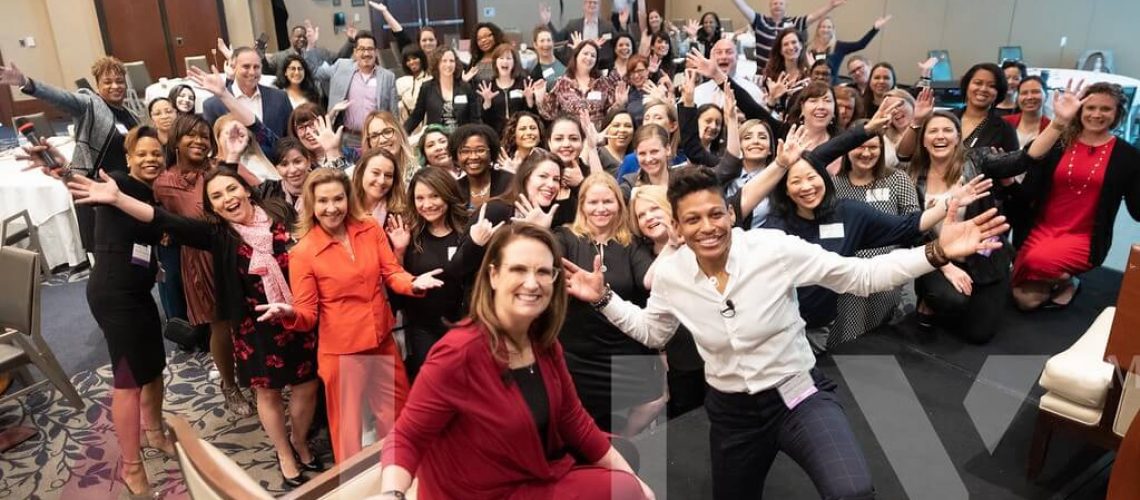Opinion editorial by Katie Mehnert
This is an open letter to the 13 Republican attorneys generals who put Fortune 100 companies and their CEOs on “notice” over DEI.
I write this open letter as a small business CEO and entrepreneur focused on strengthening and improving the industry that powers every home and business in America: the energy sector. I write it as a Texas mom who wants a better, more productive, and flourishing society for my daughter and for all children. And I write it as a Louisiana-born-and-bred, self-declared moderate who seeks out practical solutions to big challenges. While I am not a Democrat, I also am not a Republican. Your letter serves as a powerful reminder of why I have no political home in today’s GOP.
Your letter was widely recognized as a clear effort to intimidate corporate America away from programs designed to build diversity, equity, and inclusion. It was an assault on two fundamental principles that I, and millions of other business leaders, hold dear: the right of businesses to operate without such government interference, and the importance of building a level playing field.
In our organizations, people of all backgrounds should have an equal shot at joining businesses, contributing their ideas, being heard, and working their way up the ranks to become leaders. But racism, sexism, homophobia, and other forms of bigotry are still very much alive. It takes structural work to counteract these societal ills. DEI efforts are necessary in order to address these problems.
I work with all sorts of organizations, both inside and outside of the energy sector, across “red” and “blue” states. I see how DEI efforts actually work. And I know that, contrary to your portrayal, they are not designed to deny work to people for being white. Has anyone ever lost a job to a less qualified person because they are white? Certainly. And that is wrong. Our current laws give everyone the right to take legal action if they are victims of discrimination based on race or other factors.
Corporate leaders know this. To achieve numeric goals, many companies are doing what they should have done long ago. They’re seeking out bigger, more diverse slates of candidates. Recruiting not just at the colleges and universities where their executives got degrees, but also reaching out to HBCUs (historically Black colleges and universities) as well. Investing in training and education programs so that people of all backgrounds, without college degrees, can develop the skills necessary to take on certain jobs. In the energy sector, forward-thinking companies are working to create a pipeline of future talent by improving STEM (science, technology, engineering and math) education for children from an early age.
DEI programs also help to tackle bigotry -- both conscious and unconscious -- and dismantle systems that hold people back from being different from the norm. Like the fact that having a “Black sounding name” or using they/them pronouns still make it less likely that someone will be interviewed for a job. Or the fact that huge numbers of people find jobs through personal connections, presenting a disadvantage to candidates whose grandparents and parents could not get a job in a company due to discrimination.
In recent years, people of all backgrounds from across the country have raised their voices to call for an end to workplace sexism and sexual harassment; systemic racism; transphobia, and other forms of discrimination. We’ve listened to each other describe our experiences and the systemic problems that hold us back. We’ve become allies, supporting each other in the hard work of culture change.
There is overwhelming evidence that greater diversity improves businesses and the economy. I myself have written about this everywhere from Scientific American to Barron’s. By threatening legal action over DEI initiatives, you are actively working to hold back economic progress.
Contrary to the portrait you create in your letter, U.S. corporations have a long way to go in addressing systemic inequalities that hold back members of marginalized groups. A simple look at the metrics makes this clear. A recent investigative series from USA Today probed “diversity inside the nation’s most powerful companies.” It found that, “The top ranks are still predominantly white and male, while women and people of color are concentrated at the lowest levels with less pay, fewer perks and little opportunity for advancement.”
A study of the Fortune 500 found that between 2020 and 2022, the percentage of board seats held by women of color rose from 6.6% to 8.8%; for men of color, it edged up from 14% to 14.9%. As for CEOs, a look at Fortune 500 and S&P 500 companies found that 7% are African-American -- the same as in 2013, and only one percentage point higher than in 2004.
None of these numbers give anyone a reason to believe there's a widespread, dangerous movement afoot in which huge numbers of white people, especially white men, will be losing opportunities with no means of recourse. Your letter is a political scare tactic.
At a time when Americans should come together to build stronger businesses and a stronger society, you used your offices to take part in culture wars that drive people apart. You have created a distraction and misused your power in order to go after the very businesses that power our economy, create jobs, and make America’s corporate strength the envy of the world.
The majority of U.S. workers (56%) say focusing on DEI at work is a good thing; only 16% call it a bad thing. I’m hopeful that corporate executives will continue to heed the widespread calls to improve their diversity, equity, and inclusion initiatives, making the substantive changes necessary to build a truly level playing field for everyone, regardless of race, gender, sexual orientation, disability, veteran status, and other differences.
In short, I hope your letter will be remembered for not only being on the wrong side of DEI but on the wrong side of history.

.jpg)

